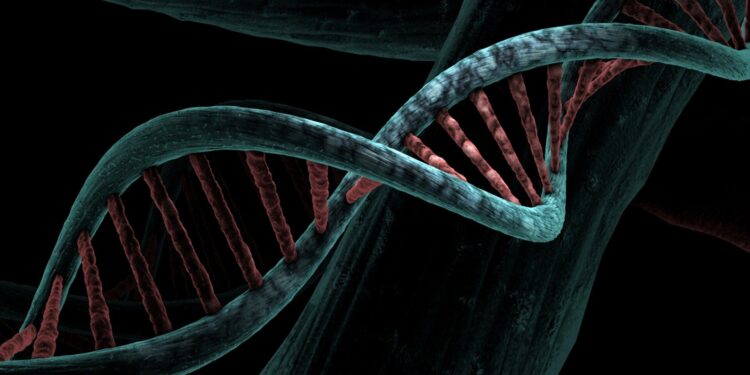Credit: Pixabay/CC0 Public domain
In research published in Nature Structural and molecular biologyResearchers at the University of Birmingham have discovered that transcription start sites (TSS) play an important role in determining the behavior of cancer cells.
The team observed that cancer cells may be more vulnerable to radiation therapy as they begin the process of copying DNA into RNA, known as transcription, using the first base cytosine site “YC » less common rather than the more usual site “YR”. ‘ Departure sites for adenine or guanine.
The results will allow researchers to better understand the process by which cancer cells proliferate and look for targets that could ensure that these cells are as vulnerable as possible to lines of treatment.
Dr Joseph Wragg from the Institute of Cancer and Genomic Sciences at the University of Birmingham and lead author of the study said: “These results are extremely interesting for our understanding of gene regulation in cancers. How cancer cells behave based on this small detail of the replication process may lead to the ability to target these changes ourselves. »
“This is particularly interesting where we could potentially ‘turn on’ a vulnerability to radiotherapy or chemotherapy and make treatments faster and more effective.”
Double Initiator Promoters
The team previously examined a key process involved in transcription in which a central promoter that supports the early steps of cell replication can have two different outcomes.
The discovery of double initiator promoters (DIPs) allowed the team to study how a small messenger RNA signal can lead to a significant change in cellular behavior. Additionally, the team found that up to 40% of genetic studies were capable of dual initiation.
Ferenc Mueller, professor of developmental genetics at the University of Birmingham’s Institute of Cancer and Genomic Sciences and co-senior author of the paper, said: “Identifying the role that early childhood plays gene regulation has the potential to rewrite our understanding of how transcription and translation are coordinated in cancer, with implications for cellular behavior, metabolism and response to treatment.
“Future research will examine how the different sites we identified that affect cellular behavior are decided, including these dual initiator promoters. We will specifically examine how DIPs affect site selection in a range of contexts with a view to defining how They determine where the transcription process begins.
More information:
Joseph W. Wragg et al, Intra-promoter switching of transcription start sites in proliferation signaling-dependent RNA metabolism, Nature Structural and molecular biology (2023). DOI: 10.1038/s41594-023-01156-8
Provided by the University of Birmingham
Quote: Where copying DNA to RNA begins could determine whether cancer cells are receptive to treatment (November 24, 2023) retrieved November 24, 2023 from
This document is subject to copyright. Apart from fair use for private study or research purposes, no part may be reproduced without written permission. The content is provided for information only.



